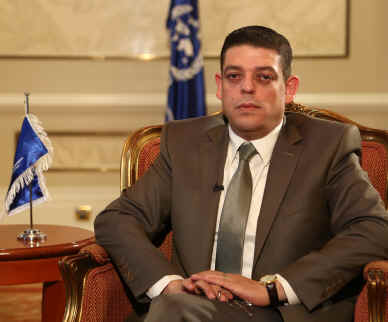
Loai Deeb, founder/president of the Global Network for Rights and Development
Warning to GNRD donors
UAE-linked rights group placed on fundraising watch list
An organisation which monitors charitable fundraising has issued a public warning about the Global Network for Rights and Development (GNRD), the UAE-linked quasi-NGO which is suspected of money laundering.
Last week Innsamlingskontrollen (the Norwegian Control Committee for Fundraising) placed GNRD on its watch list. Announcing the decision, it said GNRD had "completely failed to respond to repeated requests" for key information about its finances and organisation. GNRD had thus failed to satisfy "the basic requirements" for organisations "that are dependent on the general public's support".
GNRD, which is based in Norway, solicits donations from the public through its website, though in practice almost all its funds come from mysterious sources in the United Arab Emirates.
Last May, GNRD's offices and the home of its founder, Loai Deeb, were raided by police on suspicion of money laundering. The investigation is continuing. Both GNRD and Deeb deny money laundering and blame the government of Qatar for the allegations against them.
Charitable fundraising is not regulated by law in Norway but is monitored by Innsamlingskontrollen which in turn is linked to the International Committee on Fundraising Organisations (ICFO). To provide assurance to donors, it maintains an Approved List of organisations and also a Warning List which aims to "sensitise donors and to warn against potential frivolous raisers and organisations".
Non-profit organisations can join the Approved List by following specified accounting rules and submitting to an external control mechanism. A minimum of 65% of their funds must be used for the stated cause.
Organisations are placed on the Warning List if, after concerns have been raised about their work, they are found to have allocated less than 50% of their income to the stated cause or if they fail to provide further information about their finances.
Innsamlingskontrollen says it only places organisations on the Warning List after making several unsuccessful requests for information:
"The continued lack of response or willingness to provide this information is interpreted as a refusal to comply with the key principle of transparency that is required of nonprofits in order to maintain public confidence."

 RSS Feed
RSS Feed
